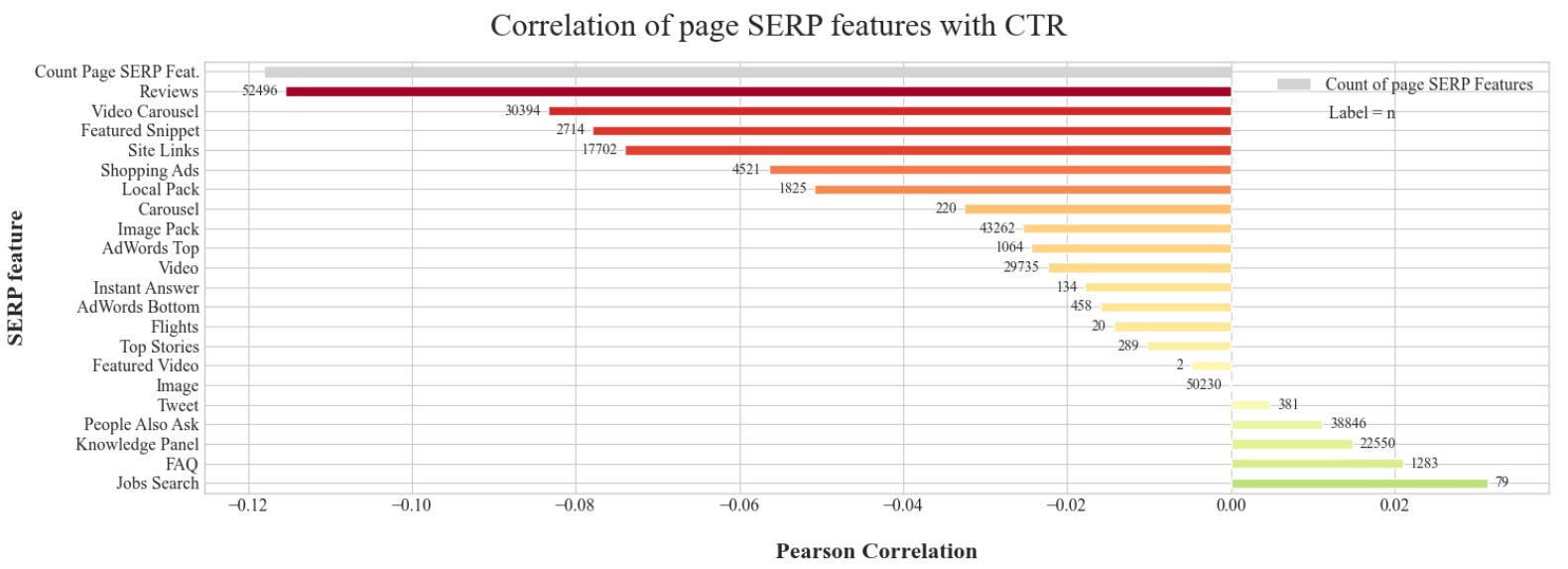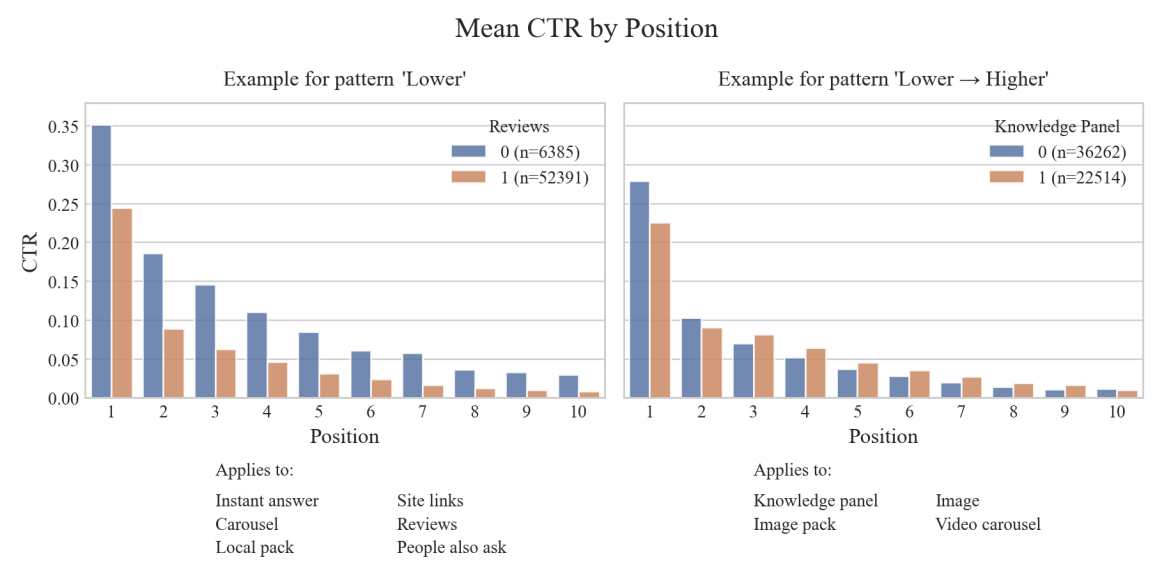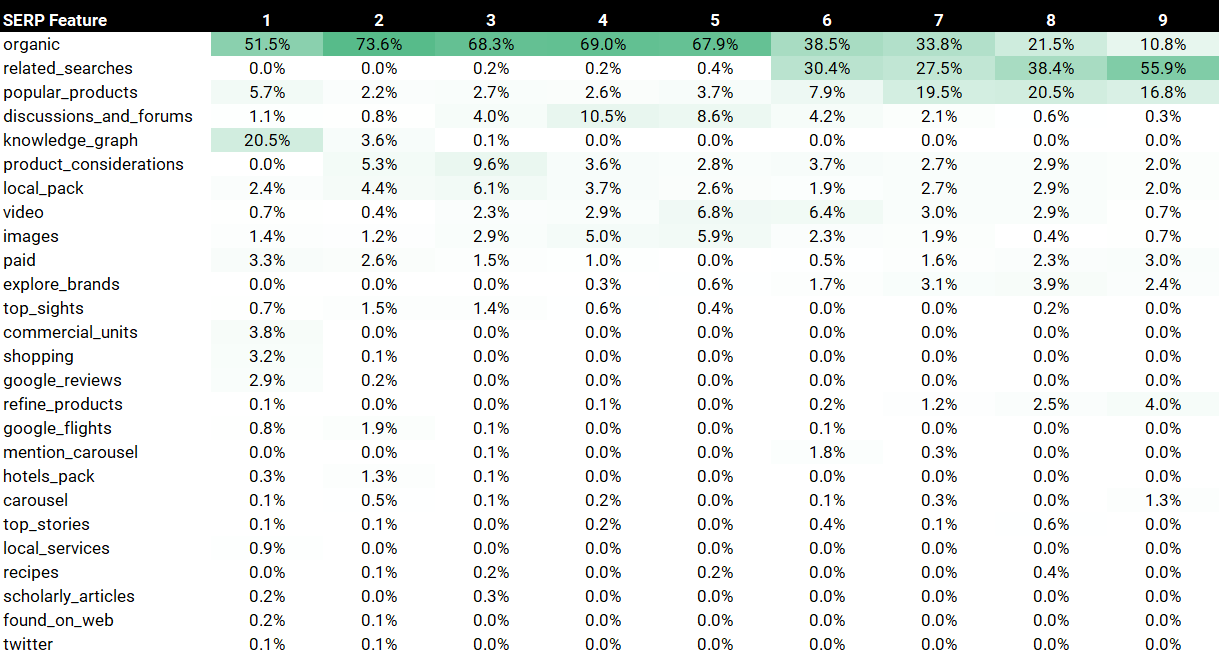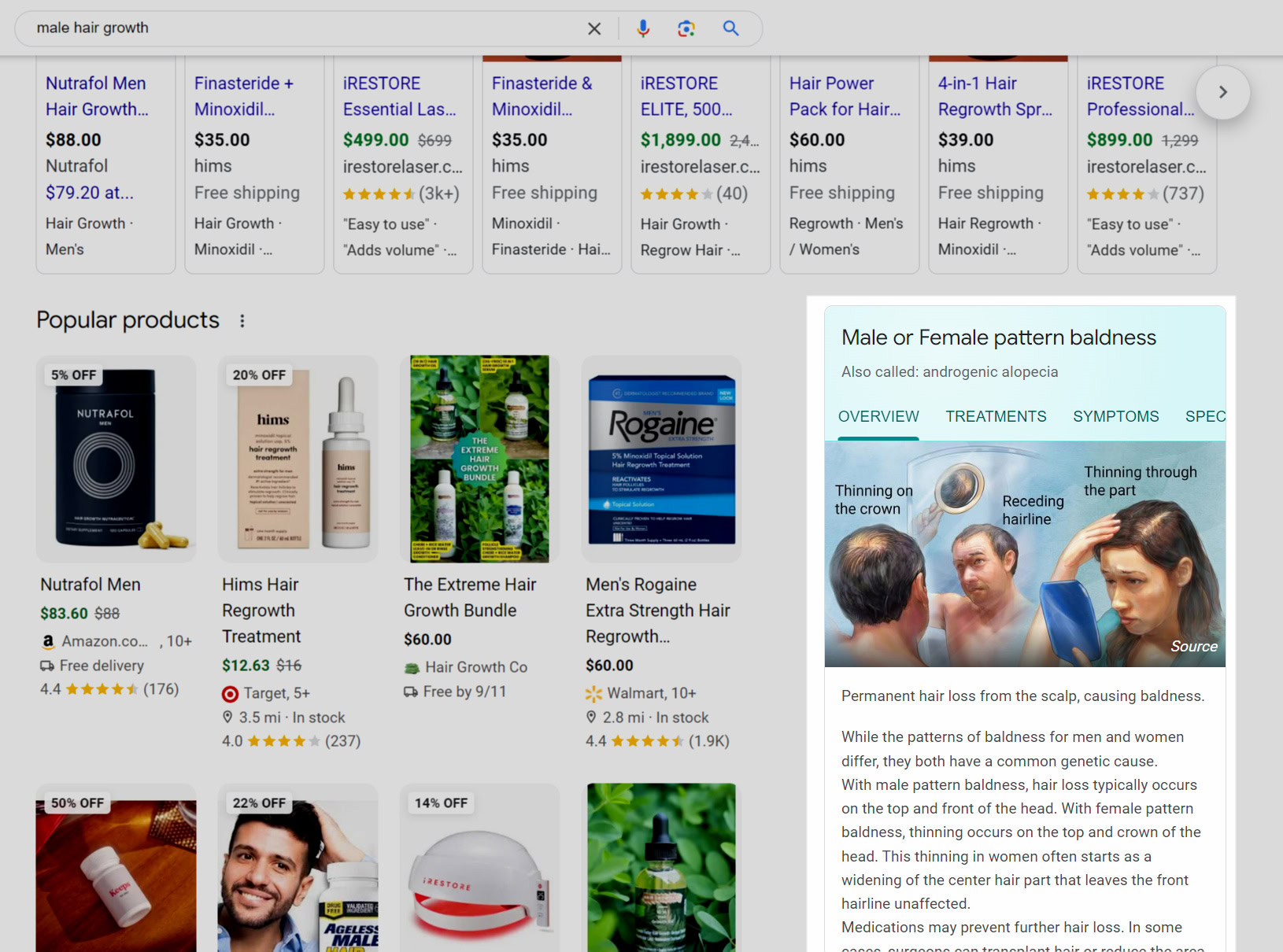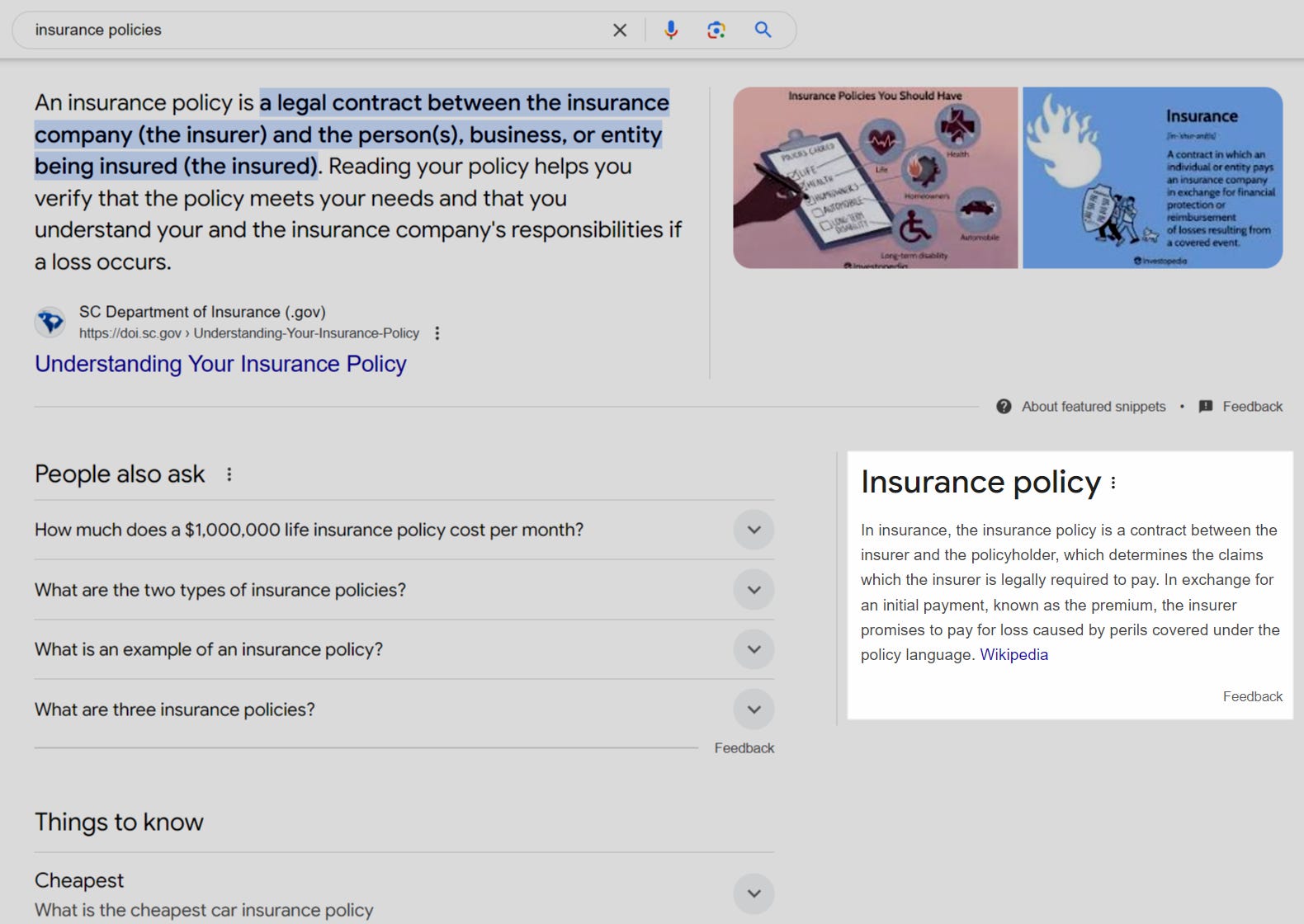
Yelp filed an antitrust lawsuit against Google for stifling competition and keeping searchers in its walled garden.
Almost a month after Google was declared to be a monopoly, Yelp brings forward legal complaints for using SERP features to keep traffic on its site and illegally scraping and using Yelp’s content.
In a CEO statement, Yelp lists interesting research papers about the impact of SERP features on organic traffic and implied revenue.
After dissecting the referenced papers and comparing them with my own findings from +7,000 results, I can confirm that the impact on traffic from most SERP features is negative.
Most companies have no idea about the traffic impact of SERP features and how to develop strategies that factor them in.
Click Drainer
SERP features are Google’s way of augmenting search results with potentially helpful direct answers.
You search for inspiration, and Google shows you images and video carousels. You search for products, and Google shows you stores near you that carry them or carousels of products you can buy online.
The benefit for companies is that they get a channel to customers with a stronger purchase intent. The risk is that Google sends out less traffic.
In some cases, SERP features can make a whole class of keywords redundant for SEO.

